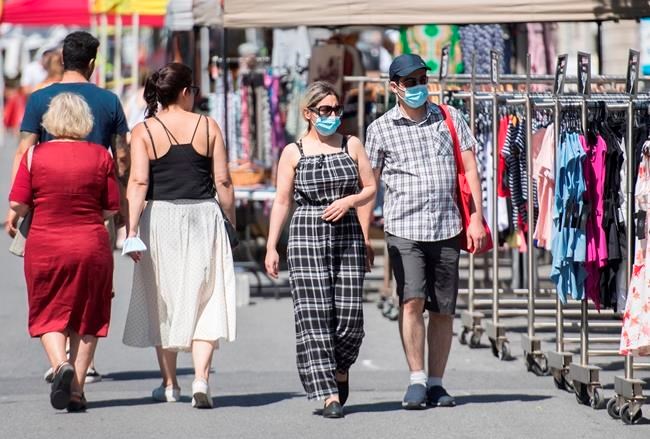How has the pandemic affected alcohol and drug use?
Has COVID-19 caused an increase in domestic violence or suicide rates in Canada, and how do we compare to other countries?
Are people in remote communities faring worse because of limited access to mental-health supports?
Those are some of the questions University of Victoria researchers will try to answer as they partner with a global team of scientists trying to better understand the physical- and mental-health impact of COVID-19.
In a worldwide survey, researchers from 11 countries — from Canada to India — will ask participants about their physical and mental health, and alcohol and substance use to create a picture of how people are coping in various areas.
UVic has launched the Canadian portion of the global survey and will be responsible for analyzing the data gathered across Canada. The initiative is being led by researchers at the U.K.’s National Health Service, and the University of Victoria is the only Canadian university participating, according to UVic.
Theone Paterson, an assistant professor of psychology at UVic and one of the principle investigators, said COVID-19-related isolation and anxiety have raised concerns about increases in suicide rates, substance abuse and overdose deaths and a rise in domestic violence.
Many people around the world are experiencing stress related to job losses, lack of child care and the fear of being exposed to the virus, said Paterson, a clinical psychologist.
Suicides increased during the SARS epidemic in 2003 and “SARS was a lot shorter and less substantial than what we’re seeing now,” said Paterson.
In July, a nationwide survey conducted by the Canadian Mental Health Association and researchers at the University of British Columbia found the pandemic has caused intense stress for all Canadians, and serious mental-health concerns, including suicidal thoughts, among certain groups — including parents, people with existing mental-health issues, Indigenous people, people with a disability or those who identify as LGBTQ+.
B.C. saw a record number of overdose deaths in May, June, and July. In July, 175 people died of illicit-drug overdoses, which was more than murders, car crashes, suicides and COVID-19 deaths combined.
The survery will take place in several phases, so researchers can compare how the mental-health effects of COVID-19 have changed over time, Paterson said.
The UVic researchers also plan to perform follow-up surveys or interviews with specific groups that could be more vulnerable to mental-health stresses, such as front-line health workers, Indigenous people and people living in remote and rural communities, Paterson said.
In rural communities, for example, there’s less access to health care, particularly mental-health resources.
The results of the research could push Canadian policy-makers to direct health resources where it’s needed the most, Paterson said.
Paterson and fellow researcher Brianna Turner, a UVic psychologist who focuses on youth, self-harm behaviour and suicide, will compare the Canadian findings to data from other countries, which could provide insights into how the impact of the pandemic on people’s mental health — and public-health responses — differs across the world. The results could then be used to help inform mental-health policy and services around the world.
“I think there’s definitely a potential from a research perspective and a policy perspective for different countries to learn from one another in terms of what works and what doesn’t,” Paterson said.
Paterson hopes the survey, which is open to anyone and can be completed online, will be completed by thousands of people. The first round of the survey closes Sept. 30, with subsequent rounds taking place over the fall and winter. After each round, researchers will analyze the data and present it publicly.
The survey can be found here.
Free couselling service available for struggling post-secondary students
The B.C. government says its Here2Talk mental-health counselling and referral service is available 24/7 to provide support to support post-secondary students. The free counselling and referral service launched in April to support students dealing with challenges such as depression, anxiety, loneliness, pressure to perform, crises, racism and relationships.
“We know that students beginning or returning to their post-secondary studies this fall may be feeling apprehensive about many things — including all the normal concerns like course work, relationships, employment on top of navigating the stress of the COVID-19 pandemic,” said Minister of Advanced Education, Skills and Training Melanie Mark in a statement. “I want anyone who feels alone or isolated or overwhelmed to know that it is OK to not be OK and that there is help for you when you need it, 24/7.”
Students can access chat sessions with a trained counsellor at here2talk.ca or by downloading the Here2Talk app. Students can also speak to a counsellor by phone (toll free 1-877-857-3397 or direct 604-642-5212). Students calling from outside Canada can dial +1-604-642-5212.



